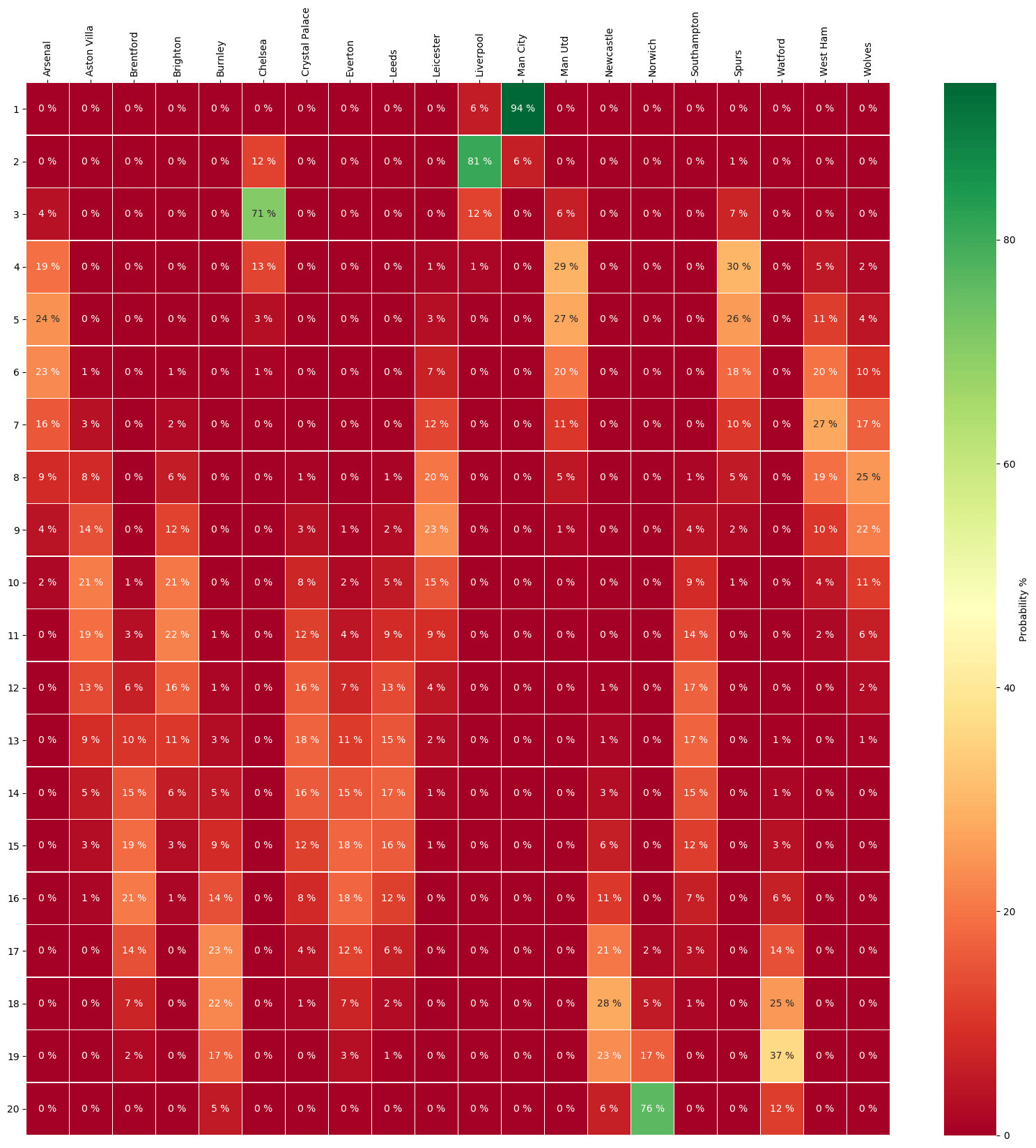City to win the league - probably
Rather belatedly, after several postponed games, all Premier League teams have now reached the halfway point of their season, having played at least 19 games.
This seems like a good time to compute the probabilities of where each team will finish in the league.
The Premier League final standings probabilities
We have developed a final standings probability heat map based upon a Dixon and Coles style football match predictive model. To generate the probabilities, we model the number of goals scored in a match as a Poisson distribution (the probability for a team to score one goal, two goals, three goals and so on in a match) and uses historical data to identify parameters to represent a team’s attacking strength, defensive strength and home advantage. Applying this model to the remaining Premier League fixtures, we can predict the final standings probabilities.
The Premier League final standings probabilities

Note : The probabilities include matches played up to and including Saturday 5th February 2022
The title is Man City’s to lose, as our model gives them a 94% chance of winning the league this season. Liverpool looks destined for second (81% chance) and Chelsea, despite some recent poor form, look like taking third (71% chance).
The heat map shows fourth spot to be one of the more competitive positions with Arsenal, Tottenham and Manchester United all with a reasonable chance of finishing in the top 4. As things stand, Spurs are slight favourites with a 38% probability of finishing in the top 4 compared with United’s 36%.
It is a similar story at the bottom of the table. Despite Norwich's recent good results, they look destined to go down along with Watford. The final relegation spot is most likely to be between Newcastle (57%) or Burnley (44%) but this could go down to the last game where Burnley play Newcastle. Home advantage could be crucial for the Clarets.
Norwich, Watford and Newcastle fans should not, however, resign themselves to playing in the Championship just yet. Similarly, Manchester United and Arsenal fans should not give up hopes of Champions League football as the model (along with all predictive models) cannot account for everything. In this case, the model is built using historic data to predict future results. It may not necessarily account for future events like a change of manager, players going in and out of form, injuries or Coronavirus absentees. It also does not factor in players who have joined or left the club in January and the effect that this has on team performance.
This leads on to a question of whether spending in the January transfer window makes much difference to where a team finishes in the league. Does spending big mean more points? We've had a look at net spend in the January transfer window over the last few seasons to work out the correlation between spending and points per game.
You can read this analysis here.










